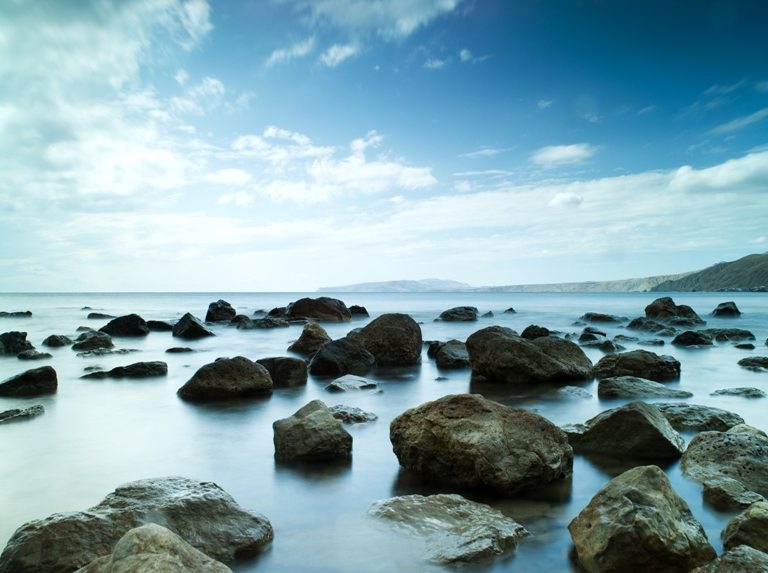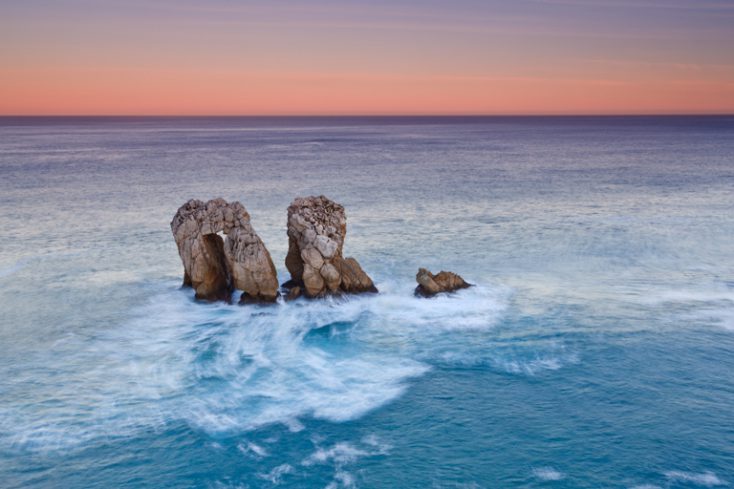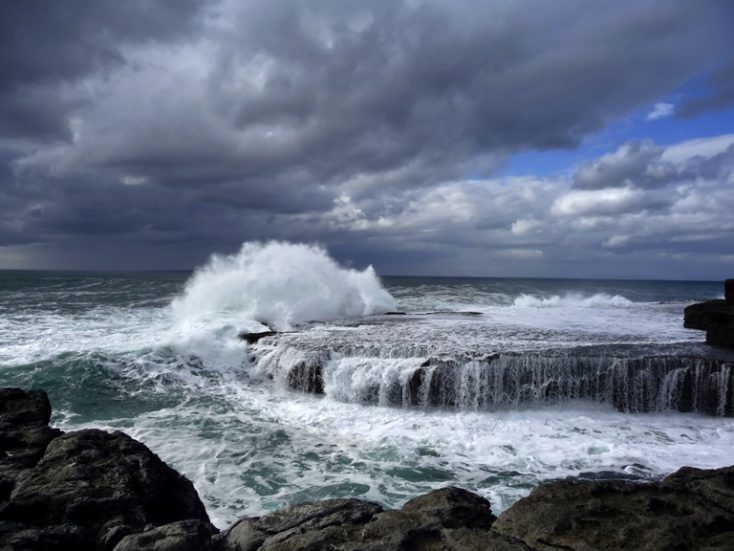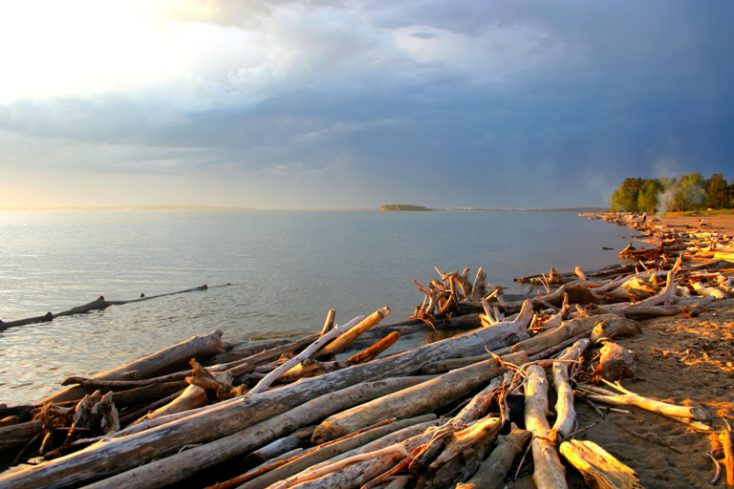Seascape photography
It has been said that a man can endlessly contemplate three things: water, fire, and another man working. The fascination with watching water—the endlessly pulsing waves of the sea or the ocean—coupled with an artistic photographic process can often produce interesting results, and can also be quite fun.

Sleeping sea under the blue sky © Depositphotos / Dmytro Tolokonov
The same spot can look different every day. The sea has been creating fantastic views for centuries by abrading cliffs and redesigning coastlines. Spend some time with a map and familiarize yourself with a nearby coast. Pick up a spot and boldly hit the road!
Choose an out-of-the-way location where you won’t be disturbed by tourists (or natives), to avoid even the slightest hint of civilization in your picture. If you know that you can’t find somewhere man has never stepped before, then head to a popular place, but during the off-season.
When shooting a coastal landscape, a wide-angled lens is often used to capture an interesting texture or a foreground element and still keep everything in focus. A vertical shot can nicely capture depth, while a horizontal shot emphasizes the scale. Include landscape lines in the shot to help you to create a particular rhythm, even among chaotically scattered rocks along the shore. A long exposure is another trick to capture a sea landscape, as it softens the water’s details, while emphasizing its dynamics.
Note: if you fail to set up a hyperfocal distance correctly, then everything more than 0.55 meters away from you will be sharp. For instance, hyperfocal distance for a 20-mm lens with the diaphragm (aperture) set at 1/16 is about 0.7 meters. Hyperfocal distance can be calculated using the following formula: F2/(f*c), where c is a constant that equals 0.036 for thin films (0.2 for reflex cameras), f = diaphragm, and F = focal distance. Don’t forget that a polarizing filter can help to get rid of superfluous reflections from the water’s surface. A neutral grey filter will damp down the light, and help increase the landscape lengths. And don’t forget to thoroughly clean the equipment after a trip to the sea shore, as tiny amounts of sand, water or salt can cause serious damage.
Get inspired with Depositphotos’ library containing over 34.000 seascape images.
We wish you a successful shoot, and hope you have fun with the process itself!
Amazing seascape sunrise © Depositphotos / Rafael Angel Irusta Machin
Ocean before storm © Depositphotos / Agnieszka Guzowska
Sea landscape © Depositphotos / Andrey Shadrin








